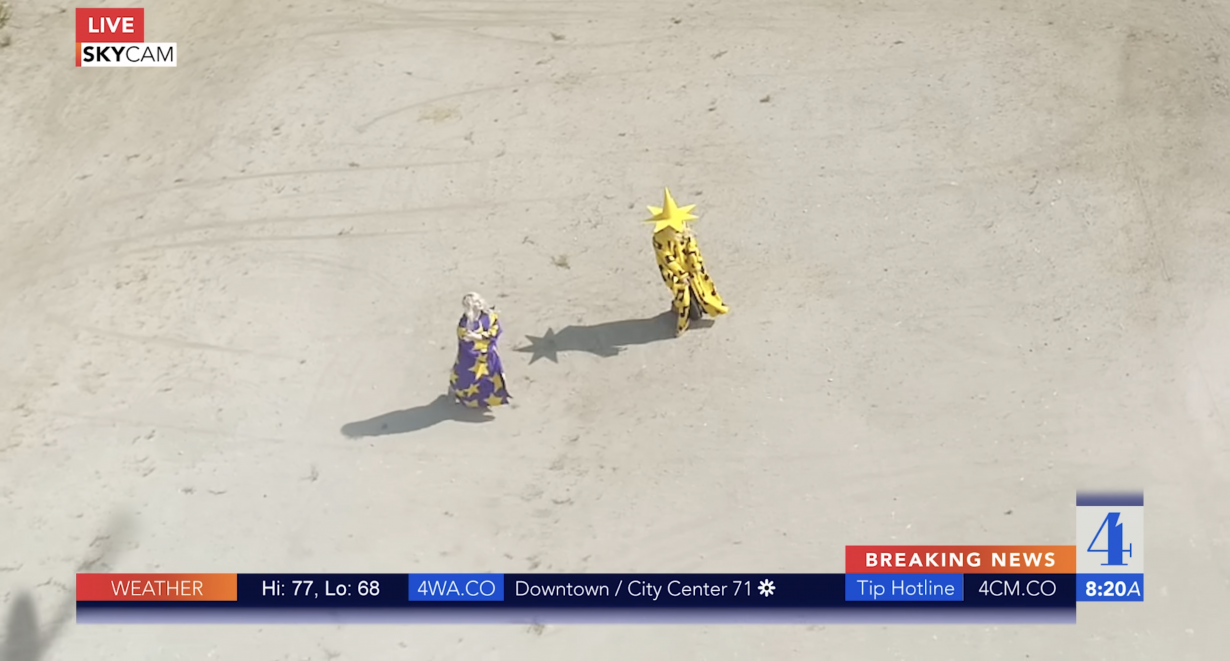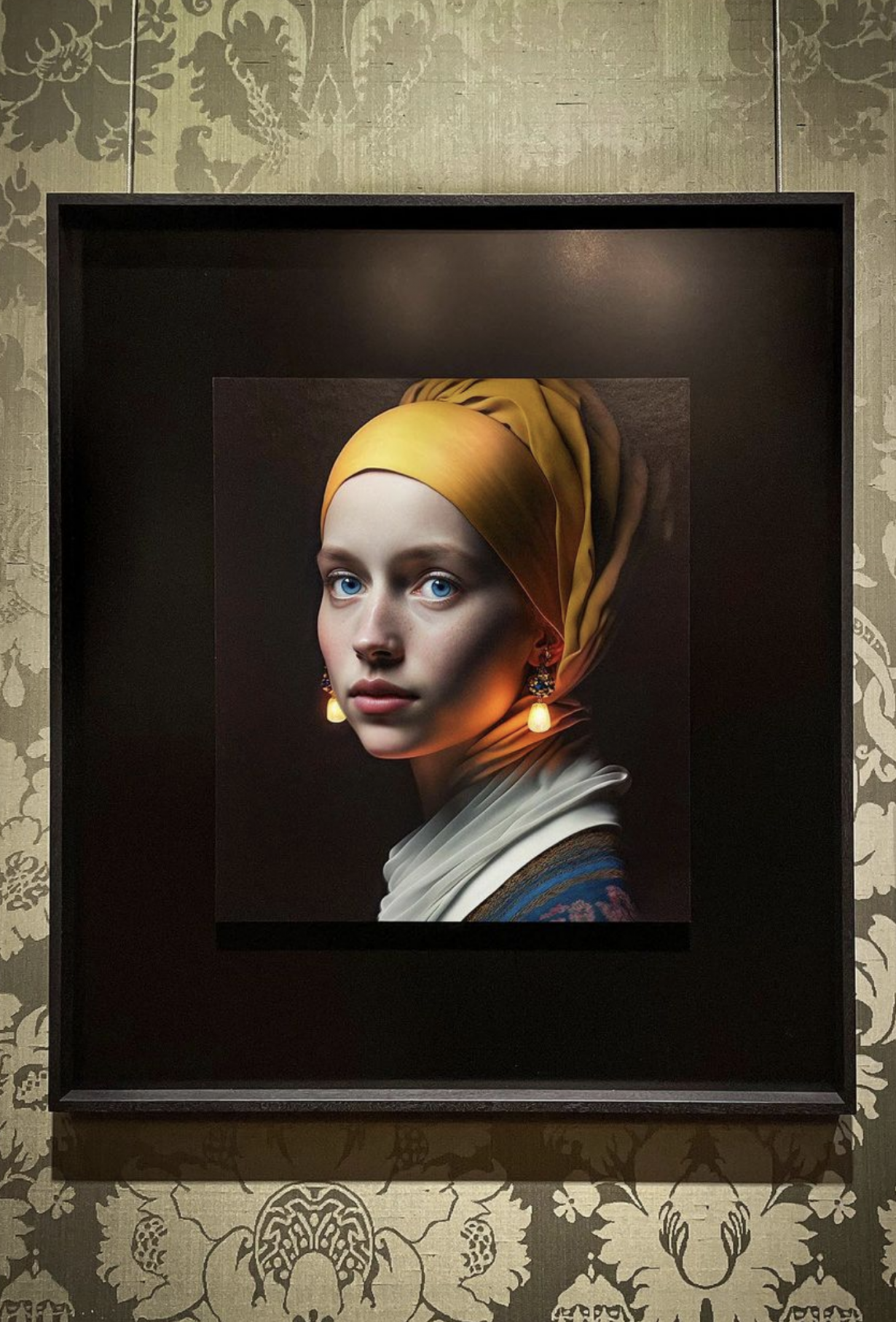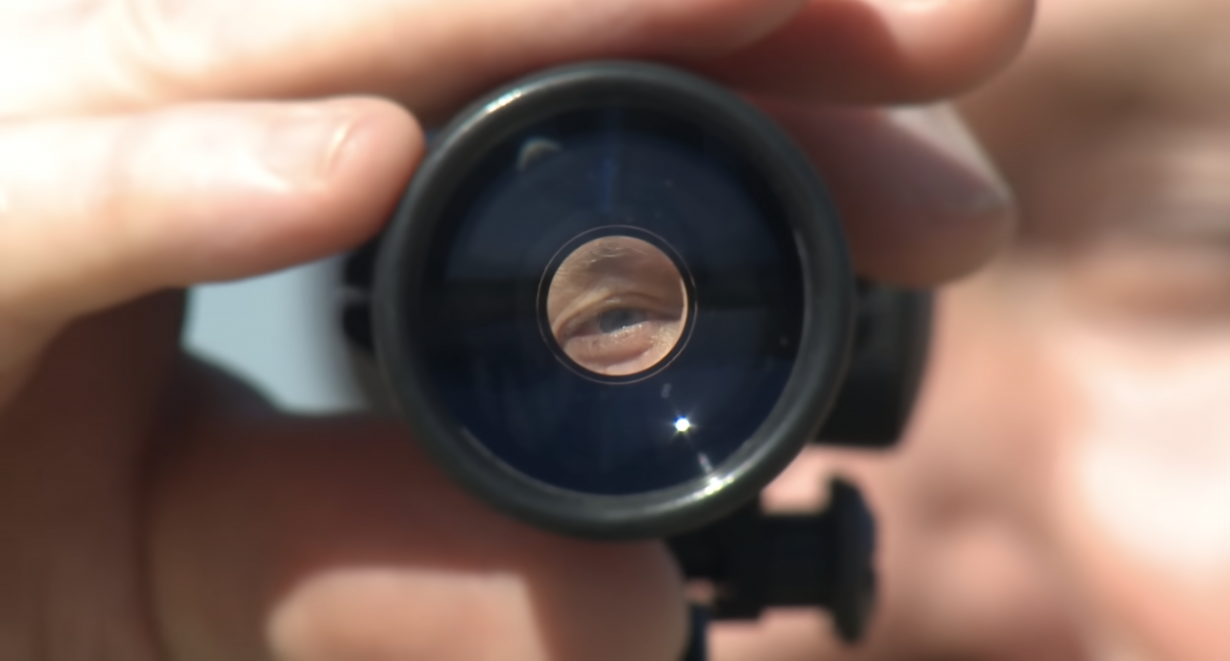100 gecs’s music, the thought goes, sounds like how the internet feels – but are we clinging to a utopian idea of our digital life?
If you haven’t heard the music of 100 gecs yet, then brace yourself: you probably won’t like it at first. Indeed, your initial exposure to the hyperpop duo – whose major label debut, 10,000 gecs, came out last month – will probably cause you to recoil in confusion and fear.
Where to begin? There are vocals drenched in autotune, a jabber of hooks drawn from such widely-deemed-offensive genres as Myspace emo, ska-punk and EDM; their music is peppered with synthesised dog barks and frog sounds, even the THX start-up noise. In music videos and press shoots, band members Dylan Brady and Laura Les pose in brightly coloured wizard outfits, in houses that look like they’ve been sourced from the backgrounds of mid-2000s photos taken on cheap digital cameras, with matching long bright-blonde hair, a huge and terrible tattoo of a couple of eighth notes on Brady’s chest. This is music that seems like it is just trying to be bad, that it is in truth comically, extravagantly bad. Absolutely nothing here has taken into consideration anything anyone has ever deemed to be ‘good taste’. A recent Evening Standard review described the duo’s sound as ‘like music’s worst genres crammed into a bazooka and fired at your face’.

But of course you should listen to 100 gecs, because actually – despite, or rather because of, the fact that they are constantly performing a trapeze act on the precipice of being completely, unforgivably awful – they might just be the best band on the planet right now.
If nothing else, 100 gecs are the best because they are so brilliantly fun: a band that is capable of writing a song called ‘Doritos and Fritos’ where the chorus sounds like Caroline Polachek fronting Reel Big Fish, and then the lines in the verses are all stuff like “I’m joining the circus/ I’m going beserkus”; a band that, in the context of a song about being a murderer on the run from the police, has a trans woman rapping “I’ve got Anthony Kiedis/ Sucking on my penis”; a band that has apparently based a piece of musique concrete around the Austin Powers ‘one million dollars’ bit.


But also, this technically being an art review, you should listen to 100 gecs because what they do is, in my incredibly important critical view, profound. In the way that they play with badness, they disclose to us something important about how we might resist the much-prophesied colonisation of the creative aspects of human life by AI.
One frequent observation about 100 gecs’s music is that it in some sense sounds, or perhaps feels, like the internet. This was especially the case when it came to reviews of their previous album, 1000 gecs (2019) – an album which, aside from being literally recorded over the internet (with Brady in LA and Les in Chicago), was full of lyrics about being on the phone and feeling sad. But even on their new album, which with a few small tweaks might well have been just a ska record, 100 gecs’s music continues to be characterised by the use of jarring genre mash-ups, the piling up of hooks on top of each other, and an overall aesthetic which might be described (in internet-speak) as ‘cursed’ (think a flash photograph of a toilet facing an auditorium of seats, or an image of Bart Simpson with human skin).

100 gecs, the thought goes, sound like how constantly scrolling through social media, posting alternately stupid and sincere shit to feel the dopamine rush of likes and heart-reacts, feels. If your mind were to somehow freebase the internet, in all its shitty glory, 100 gecs is the sound that everything would make.
And yet already, I think, we might have reason to think that this assessment seems a bit off. After all: while in 2019, when 1000 gecs was released, we could only really imagine what ‘the internet’ might sound like, in 2023 we now have widespread access to technologies which can, in theory, trawl everything on the internet for us, and spit out anything we like. And the results are not, let’s face it, all that much like 100 gecs. Or at any rate, they are not tending in that direction.
It’s true that you can use AI – for instance, AI image generators – to create some pretty cursed shit. This, after all, was the joy of DALL-E Mini when it first launched: a game where you could get the machine to spit out things like ‘gaming toilet’ or ‘fisher price guillotine’. But it is clear that the people behind these technologies do not really want you to use them this way: if nothing else, because they seem to be on a constant quest to eliminate whatever is distinctive about how their tools do faces (e.g. swirly) or hands (e.g. with seventeen fingers).
Rather, they want you to use their tools to produce things like this truly dreadful image, mostly the product of a generative AI, that the Mauritshuis hung to replace Vermeer’s Girl with a Pearl Earring while it was on loan at the Rijksmuseum. Here we have a wonderful illustration of the limitations of AI art: while the original Girl fascinates, as a result of her expression ambiguously between seduction and fear, this one just looks like she wants to pop up as a hologram to tell you about the great deals available at this airport’s duty free. She is inoffensive to the point that to see her is to know that you’re in hell.

Similarly, as is clear from the comments on this discussion on the relative merits of Paul Klee’s Angelus Novus (1920), the people who most evangelise for AI art on its own terms appear to have the worst taste in the world. The paradox of all these AI image generators is that as soon as anyone tries to use them to produce something accurate, it is almost always immediately bad – far worse than anything anyone produces when trying to use them somehow improperly. And the technological tendency, it seems, is away from being able to use AI image generators to produce weird or freaky things – in other words, away from being able to use AIs in genuinely interesting or creative ways.
In all of this, then, there is something about clinging on to the thought that 100 gecs ‘sound like’ the internet that strikes me, I guess, as faintly utopian. We might wish for the true meaning of ‘the internet’ to be the untethering of all this weird, stupid shit. But actually there are powerful forces massing to roll out technology that hopes, at least, to radically alter the nature of real, independent artistic innovation, perhaps even eliminate it entirely: that would like to be able to use this technology to turn the internet into a space (even more than it is already) where we will all be algorithmically pigeonholed into a fixed enough identity category to be sold the same sort of just-about-convincingly-OK-enough stuff over and over again, forever.

But if they do not exactly sound like the internet, 100 gecs at least allow us to see how we might resist what seems to be coming to it.
Imagine you have trained an AI exclusively on the music of 100 gecs. Obviously, you could prompt it to create music that sounded like 100 gecs, and at least some of it would probably even convince. But what the AI could never do, would be to play with badness in the way that 100 gecs themselves do. Rather, the AI trained on 100 gecs would, soon enough, turn what it had heard into a set of conventional standards, which it would then take it upon itself to apply. In other words, it would try to be good, and in so doing produce things that could only ever, possibly, be bad. It is just this that 100 gecs themselves do not do: rather, they make music that is good, in large part, because it is completely unashamed about the possibility that it might be terrible, maybe even aspires to be.
Perhaps, then, we should see what 100 gecs do along the lines of what Adorno and Horkheimer describe in Dialectic of Enlightenment (1944) as the ‘mythic cunning’ Odysseus displays through the Odyssey: cheating the gods precisely by honouring the terms of his various contracts with them to the letter. Like AIs, 100 gecs seem to have been, as it were, trained on everything – they seem drawn to the possibility of mashing absolutely everything up together. But by daring to do this badly, they are able to produce something that is actually, brilliantly good. The band thus follow what is, essentially, the same logic as the machines do – but manage to find a way to cheat it in the process. If the algorithms really are coming for all cultural production, then this is how we who remain human ought to position ourselves towards it.
